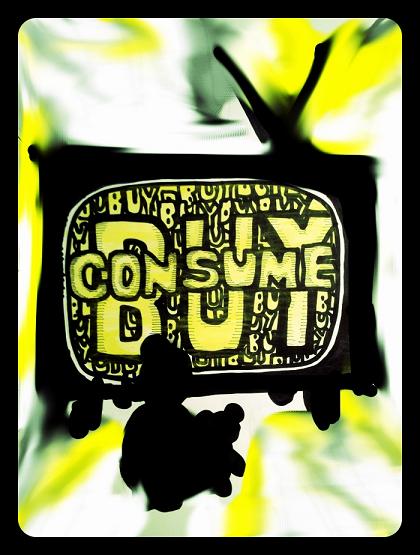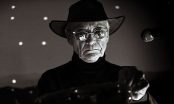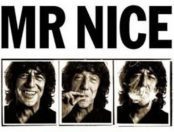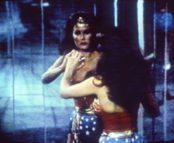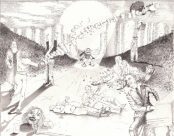Television has struggled enormously to cope with the technological paradigm shift of the internet – a shift as momentous in historical terms as the invention of the printing press. The basic model of television is one-way: content provided from active performers to passive audience. The internet, in contrast, is based on feedback loops and reciprocity between people creating content and those absorbing it.
The past decade has witnessed an uncomfortable relationship between the two. After the initial manias and bubbles of the dot.com era, the internet has settled into the web2.0 and social networking era like an adolescent growing into adulthood with a number of voluble tantrums. We are all collectively learning to speak more politely and constructively to each other over the impersonality of the internet and learning how to use it better as a tool.
[quote]The great advantage
of the internet is
that it allows everyone
to have a voice.
The great disadvantage
is that it allows
everyone to
have a voice.[/quote]
Somebody voicing puerile criticisms is not saying something as important as somebody who is creating beautiful new ideas or artwork. That is precisely the advantage of television as a medium – it allows for the process of editing. Its disadvantage is that it allows for the process of editing. When there are new ideas and cultural movements that are crystallising, if the editors are not listening they will not open the door to those movements. That is the uncomfortable general situation as we come to our new decade of the 21st century. Neither side of the equation is satisfactory: fascinating ideas and expression that are fractured and fragmented across the internet, so that each part of it has a heavily limited niche audience, and conservative and repressed and repressive television that has mass audiences but no fire in its belly and as little brain in its head as the scarecrow in “Wizard of Oz”.
The two processes are interconnected. As a result of this explosion of new expression, television has gone into its shell in the manner of a tortoise that feels threatened or a Roman military unit going into a defensive tortoise formation. The first decade of our century witnessed the domination of homogenised formats that could be sold around the entire world in franchises. The various ‘reality TV’ shows (which should be renamed ‘unreality TV’ shows since they are almost entirely artificial) and panel games and performances judged by a tribunal of so-called ‘experts’ are the equivalent of fast food television. It is overwhelmingly dumbed-down, monumentally low in conceptual terms and in integrity, but as a result available to mass audiences worldwide. That era is, however, as tired and as finished as the last days of the Bill Grundy chat show in the 1970s which was finished off by an uncouth and expletive-riddled performance by the Sex Pistols. Watching these programmes makes watching a tortoise moving across a field of growing grass look like excitement.
In the UK, things are so repressed in terms of television that there is a gap in the market the size of the Grand Canyon for a new channel unless the existing channels sort their act out and start listening to the vibrancy of the internet and start actively commissioning it and having the courage and brass-eyed balls to aggregate it together in fresh and vibrant new programming. There are some programmes with flair and imagination out there but they are in a tiny minority. Eras change: intelligence, which has been systematically suppressed, is where the fresh opportunities lie. The early days of Channel 4 in the 1980s under Jeremy Isaacs are an instructive example of how to create a channel that is vibrant and that has the hunger to innovate. There are opportunities everywhere: those who grasp them now will reap the rewards. There are many who would argue that the internet age has finished television but the advantage of editing, of sifting through vast amounts of material and then agglomerating together what is of the highest value, is still relevant – perhaps more relevant than ever given the explosion of information and narrative in every direction that the internet has unleashed. Editing without listening is, however, the malaise described in the Zen koan of the sound of one hand clapping, which is why so very very little of contemporary television is up to speed with what is going on culturally.
Television, today, is not just the drug of the nation as the Disposable Heroes of Hiphoprisy had it. The way that that particular tool is being used is a drag on the nation. It is holding us back from moving forward and from creating a vibrant and pluralistic exchange of ideas. The monoculture and monothought era of television over the past decade is more dead than a dance between a dodo and a woolly mammoth. Good riddance to it. Bring on the new era of television. There is no justification whatsoever for a further nano-second of delay.
Image: Francesco Marino / FreeDigitalPhotos.net
I was born in Kingston-upon-Thames in 1978. I currently live in Woking in Surrey. Without anybody much noticing, I recently unilaterally awarded myself the Nobel prize for literature and also the Turner art prize. On reflection, and in particular by applying the Groucho Marx club principle, I decided that I deserved neither and therefore if I should ever receive both, I would give the former away to 724 women (which would, in gender terms, even up the number of awards given since 1901) and the latter away to 83 women (which would even up the number of nominations since 1984). I am open to suggestions for who those 807 hypothetical women should be.

